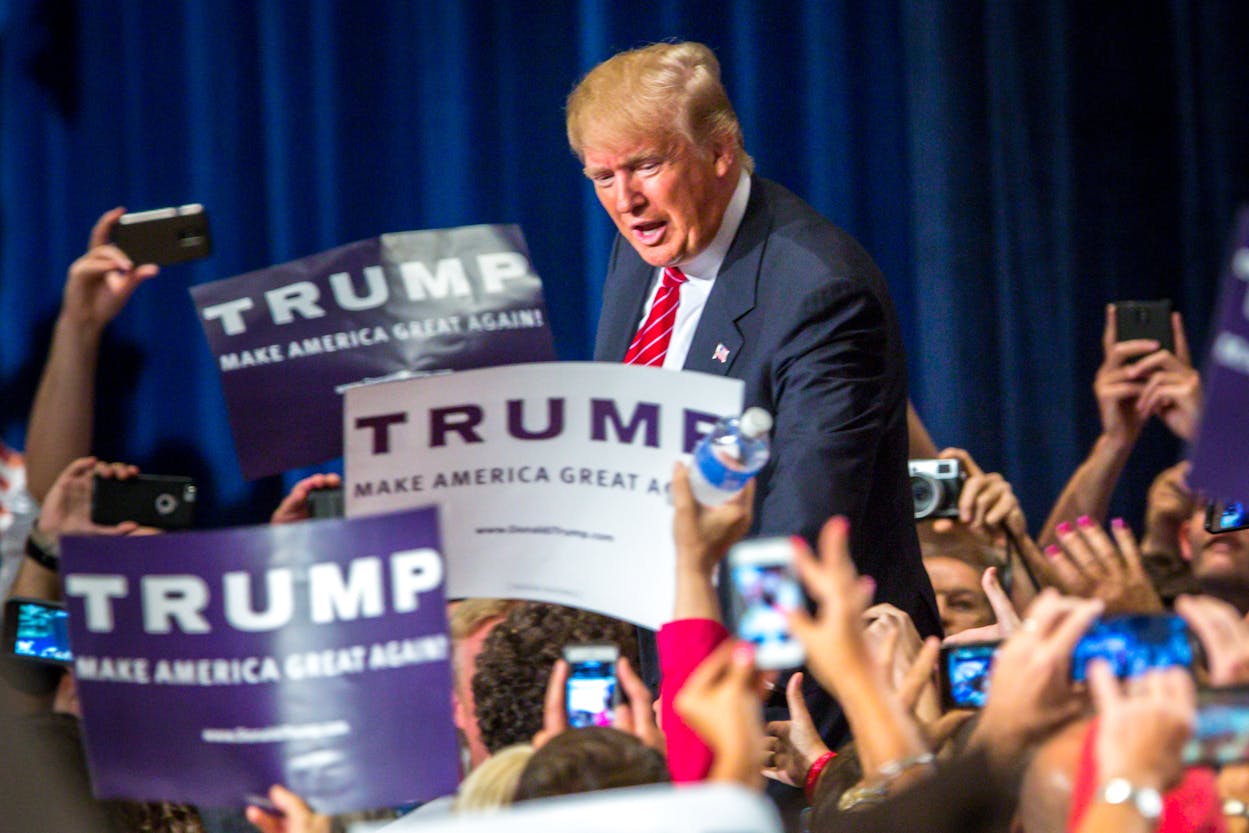On December 19, Texas’s 38 presidential electors will assemble in Austin to cast their votes for president. Typically, all 38 would vote for the candidate who won the popular vote in Texas—in this case, Donald Trump. But 2016, clearly, is not a normal year. During the general election, at least three Texas GOP electors publicly expressed ambivalence about voting for Trump—Chris Suprun, Marty Rhymes, and Art Sisneros. Last week, Suprun said he would be supporting Trump after all. Rhymes followed suit on Monday.
That leaves Sisneros, a forty-year-old industrial welding supplies salesman from Dayton, a town of about 7,000 in Liberty County, northeast of Houston. Contacted by phone on Wednesday, Sisneros said that he’s still considering his vote. “I honestly still have not made my decision yet,” Sisneros said. “I’ve got three options—to vote for Trump, to be faithless and vote for somebody else, or to resign.”
Unlike twenty-nine states (and the District of Columbia) with laws requiring its Electoral College representatives to vote according to the popular vote, Texas’s electors are free to cast their ballot however they want. Over the course of history, there have only been 157 of these so-called “faithless electors” who went against the popular vote in their state. But it’s never happened in Texas. The two state parties only require electors to sign an affidavit that they will vote according to the will of the people. The Texas Republican Party did not respond for requests for comment.

Sisneros, a libertarian and a Christian, supported Rand Paul in the Republican primary; for president, he wrote in Thomas Hoefling, a little-known anti-abortion activist from Iowa whom Sisneros called “the only qualified” candidate in the race. The day before the general election, Sisneros published an essay entitled “Biblical Voting in the Age of Trump” detailing his qualms with the president-elect on his personal website. The essay closely examines a number of passages of scripture in an attempt to divine whether “it is acceptable for a Christian to vote for a man like Trump for President.” Sisneros concludes that it is not:
It seems clear to me that God both calls me to vote and directs me to only vote for men who fear Him and are just according to God’s law. He doesn’t expect or allow me to add to his qualifications and seek for perfection. He also doesn’t hold me accountable for all the sins that these qualified men commit once in office. He does, however, give me clear commands for who is qualified and expects me to be obedient with my calling as a voter. Therefore, I can not in good conscience vote for Donald Trump for President.
Although he couldn’t bring himself to cast a ballot for Trump in the general election, he’s having a harder time deciding what to do with his Electoral College vote. “The principle still applies, but the difference is that as an elector I’m voting as a representative of my congressional district,” he explained. “And so the question becomes, did they vote for me because they trust my judgment and my ability to make that decision? Or was their vote in the confidence of the pledge I signed at the [state GOP] convention that I would vote for the nominee? That’s where the tension is.”
Since the election, Sisneros has been besieged by supporters of both Trump and Clinton urging him to vote for their candidate. He receives about a hundred emails a day, as well as countless phone calls and Facebook messages. That feeds into the national effort currently underway to persuade Republican members of the Electoral College to block Trump by switching their vote to either Clinton or a different Republican. A petition on Change.org calling on the Electoral College to vote for Clinton has received over four million signatures, making it the most popular petition in the site’s history. And two Democratic members of the Electoral College have launched a campaign to persuade their Republican colleagues to block Trump.
Sisneros seems unlikely to vote for Clinton even though she won the national popular vote. He argues in his essay that she is at least as unqualified for the office as Trump: “There is no doubt that Trump has said and done things that are too depraved to be repeated here, but so has Hillary Clinton, his opponent in this race for the White House.”
Although he originally decided to run for elector at the GOP state convention “on a whim,” Sisneros has since given the position serious study, including reading several books about the history of the Electoral College. “In the beginning, it wasn’t even based on party,” he said. “States would just select the wisest people they knew in a particular area. We’ve gotten so far away from what the original intent was. So how do we get back there—how do we reform the system? And what does that look like?”








